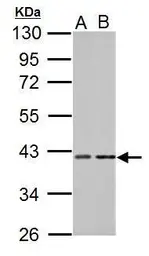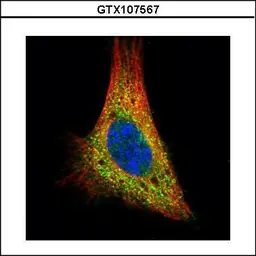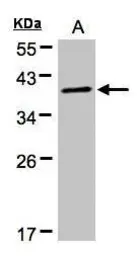PKA C alpha antibody
Cat. No. GTX107567
Cat. No. GTX107567
-
HostRabbit
-
ClonalityPolyclonal
-
IsotypeIgG
-
ApplicationsWB ICC/IF IHC-Wm
-
ReactivityHuman, Mouse, Zebrafish



